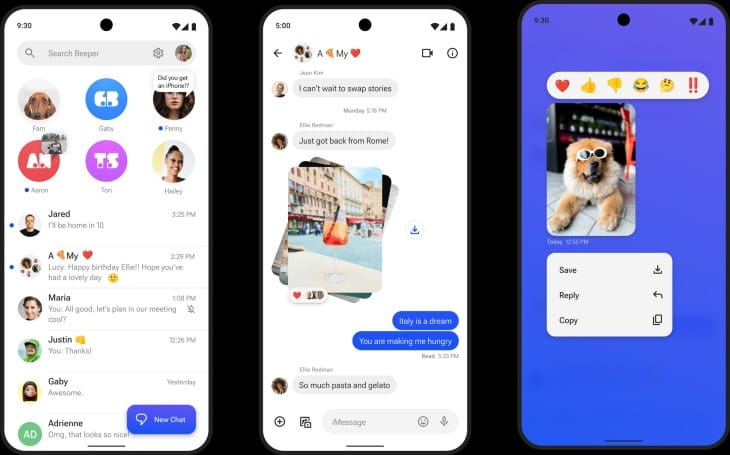Beeper Mini: Bridging the Gap Between Android and iMessage
Today, I explored the intriguing world of Beeper Mini, a new app reshaping how Android users communicate with iPhone users via iMessage. What sets Beeper Mini apart and makes it a technological marvel is its ability to function without iCloud (or Apple ID) involvement, enhancing its security aspect.
Previously, Android users longing for iMessage connectivity faced cumbersome workarounds. They had to trust their iCloud credentials to a third party, which accessed a Mac Mini in some remote server warehouse. This method raised security concerns and required users to rely on an external system or keep their own Mac perpetually online – a highly impractical solution for many.
Enter Beeper Mini, a brainchild of the startup Beeper, known for its multi-platform messaging aggregator. Priced at an affordable $1.99 per month, this app allows Android users to engage in end-to-end encrypted iMessage chats. As Beeper co-founder and CEO Eric Migicovsky (also the founder of Pebble) explains, the real breakthrough here is the reverse engineering of the iMessage protocol. This innovation eliminates the need for a Mac server relay, a common feature in other apps.

Beeper Mini's approach contrasts sharply with previous services, including Beeper's own earlier iMessage implementation, which involved relaying messages through a cloud-hosted Mac. This method posed significant security risks, as seen in the cases of Sunbird and Nothing Chats, both of which faced severe security challenges.
Beeper Mini's messages are end-to-end encrypted, with encryption keys stored exclusively on the user's phone. The app interfaces directly with Apple's servers, emulating a genuine iMessage client. It supports features like high-resolution photos, threads, read receipts, and more, although it currently lacks capabilities like live location sharing and FaceTime calls.
The legality of Beeper Mini's operation hinges on a fine line. Migicovsky cites the Digital Millennium Copyright Act (DMCA 1201 F), which protects reverse engineering for interoperability. However, Apple's reaction remains uncertain, although the current climate around interoperability, spurred by laws like Europe's Digital Markets App (DMA) and antitrust scrutiny in the U.S., could complicate Apple’s direct action against Beeper Mini.
In my testing today, Beeper Mini effectively sent iMessage texts from my Android device to various iPhone users, maintaining full functionality. However, I’ve heard there are limitations, like conversations reverting to standard SMS when the Android phone’s battery dies.
WTF?
With its competitive pricing and innovative approach, Beeper Mini is a fascinating development in the crowded messaging environment, where users often juggle multiple apps. Its potential impact on smartphone interoperability is significant, especially considering the current landscape where brand ecosystems heavily influence digital communication preferences.
As Beeper Mini navigates the complex dynamics of tech giants like Apple and potential acquisition interests from companies like Samsung, it presents a compelling case for a more interconnected, less brand-restricted communication future. If Beeper Mini proves successful at scale, it could herald a transformative shift in how we perceive and engage with digital communication, moving beyond the confines of brand-specific ecosystems.

Member discussion